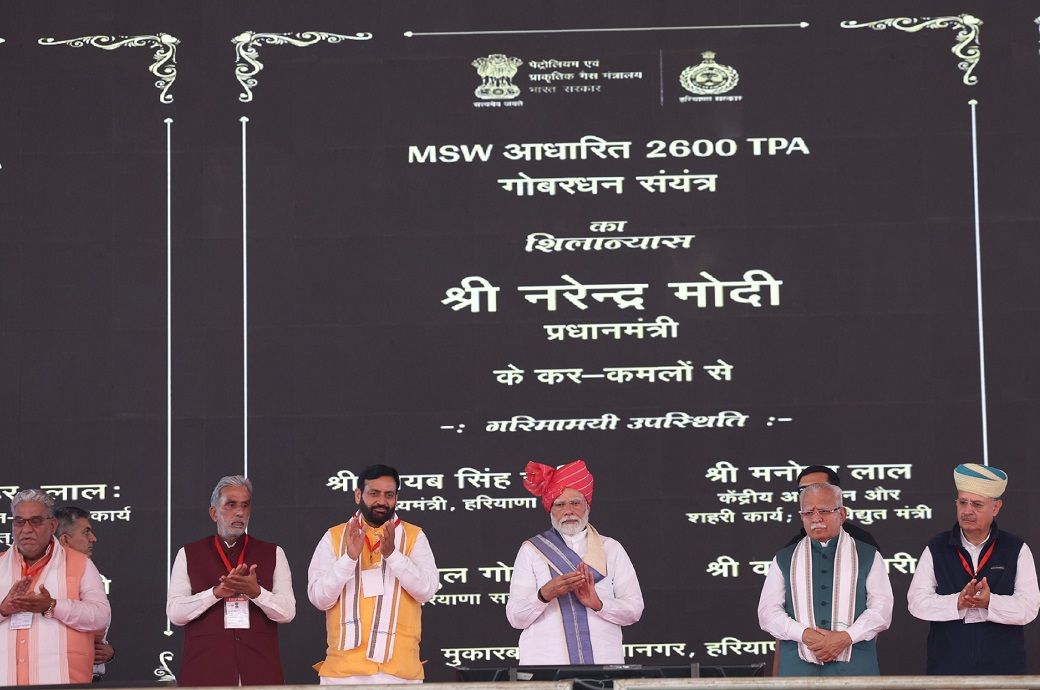
This plant will utilize waste/biomass sources like municipal solid waste and cattle dung, to produce CBG through anaerobic decomposition.
PM Modi laid the foundation stone for a ₹90 crore (~$10.49 million) Compressed Biogas (CBG) plant in Yamunanagar, Haryana.
Set for completion by May 2027, it will process waste and cow dung to produce 2,600 tonnes of CBG annually.
The project will cut emissions, save forex, generate jobs, and support waste management and sustainable farming through biofertiliser use.
The foundation stone-laying ceremony marked a significant milestone in India’s journey towards a cleaner and more sustainable future. The CBG plant at Yamunanagar, Haryana, is expected to serve as a model for similar projects across the country, promoting waste management, production of green fuel and employment generation.
Key Benefits
- Scientific disposal of 45,000 tonnes of municipal solid waste and utilization of 36,000 tonnes of cow dung annually
- Savings of ₹3 crores in tipping fees for the Municipal Corporation
- Reduction in CO2 emissions by 7,800 tonnes and substitution of 2,600 tonnes of CNG annually
- Forex savings through import substitution of over ₹9.5 crore annually
- Production of approximately 9,500 tonnes of bio-manure annually
- Support for Municipal Corporation in waste management and contribution to Atmanirbhar Bharat
- Reduction in methane emissions and air pollution from open dumping and fires in landfill area
- Employment generation of 15,000 man-days during the project phase and about 50 persons will be employed (direct/indirect) during operation.
- The residue generated from the MSW can be used as biofertilizer & usage of this biofertilizer improves the soil carbon content, enhances nutrient and moisture levels helping farmers to increase crop yields.
Note: The headline, insights, and image of this press release may have been refined by the Fibre2Fashion staff; the rest of the content remains unchanged.
Fibre2Fashion News Desk (HU)





